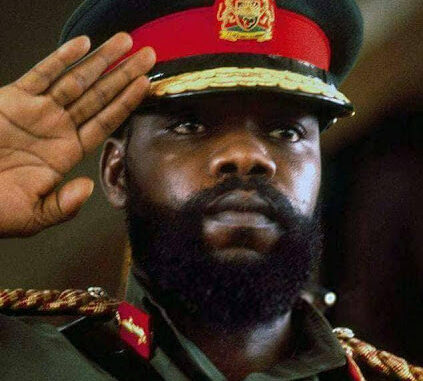
Chukwuemeka Odumegwu Ojukwu: The Legacy of a Nigerian Leader
Chukwuemeka Odumegwu Ojukwu, often referred to as Emeka Ojukwu, was a prominent Nigerian military officer, politician, and leader of the secessionist state of Biafra during the Nigerian Civil War. Born on November 4, 1933, in Zungeru, Nigeria, Ojukwu’s life was marked by his dedication to his people and his significant impact on Nigerian history.
Early Life and Education
Ojukwu was born into a wealthy Igbo family. His father, Sir Louis Odumegwu Ojukwu, was a successful businessman, which afforded Emeka the opportunity to receive an excellent education. He attended prestigious institutions such as King’s College in Lagos and Epsom College in England. Ojukwu later graduated from the University of Oxford with a master’s degree in history.
Military Career and the Nigerian Civil War
Ojukwu’s military career began in 1957 when he joined the Nigerian Army. He quickly rose through the ranks, becoming a lieutenant colonel by 1964. His leadership skills were put to the test during the political turmoil of the 1960s. Following a series of coups and ethnic tensions, Ojukwu declared the Eastern Region of Nigeria an independent state, known as Biafra, on May 30, 1967.
The declaration of Biafra led to the Nigerian Civil War, a conflict that lasted until 1970. Ojukwu’s leadership during the war was both praised and criticized. He was seen as a hero by many Igbos for his efforts to protect his people, but others blamed him for the war’s devastation.
Exile and Return to Nigeria
After Biafra’s defeat in 1970, Ojukwu fled to Ivory Coast, where he was granted asylum. He remained in exile until 1982, when he was pardoned by the Nigerian government and allowed to return home. Upon his return, Ojukwu attempted to re-enter Nigerian politics, joining the National Party of Nigeria (NPN) and later the All Progressives Grand Alliance (APGA).
Legacy
Ojukwu passed away on November 26, 2011, in London, England. His legacy remains a subject of debate. To many Igbos, he is a symbol of resistance and a champion of their rights. To others, he is a controversial figure whose actions led to a tragic and costly war.
Leave a Reply